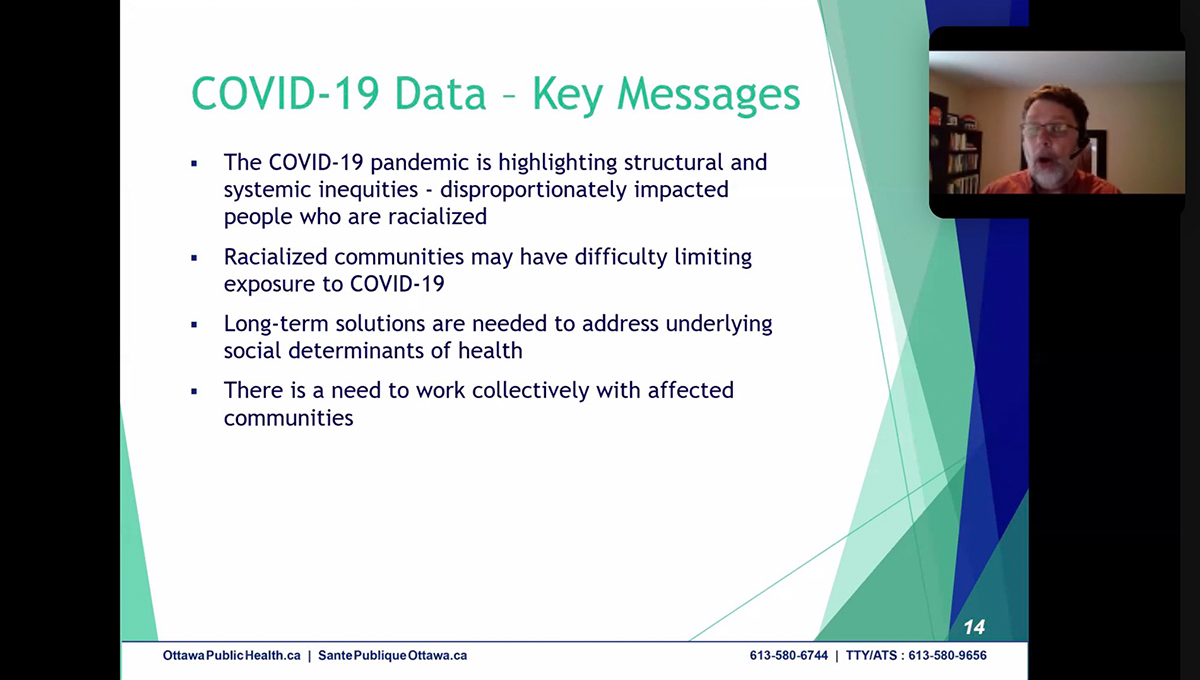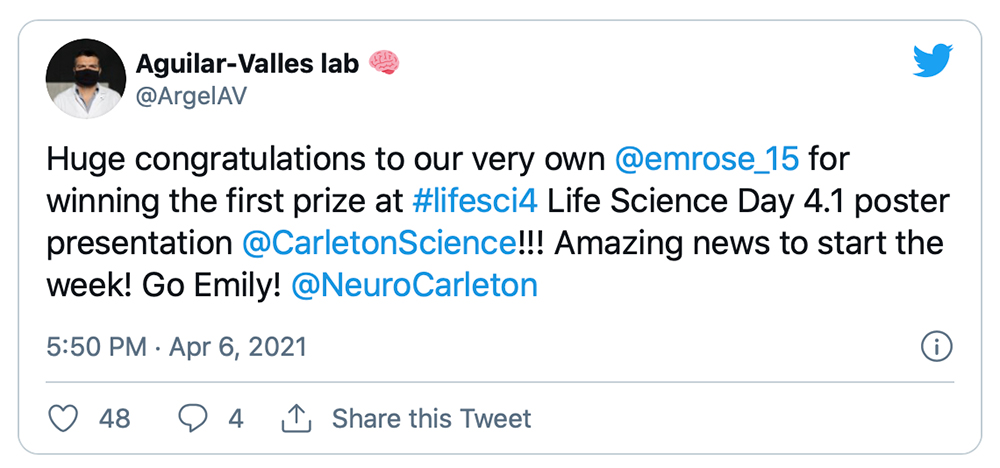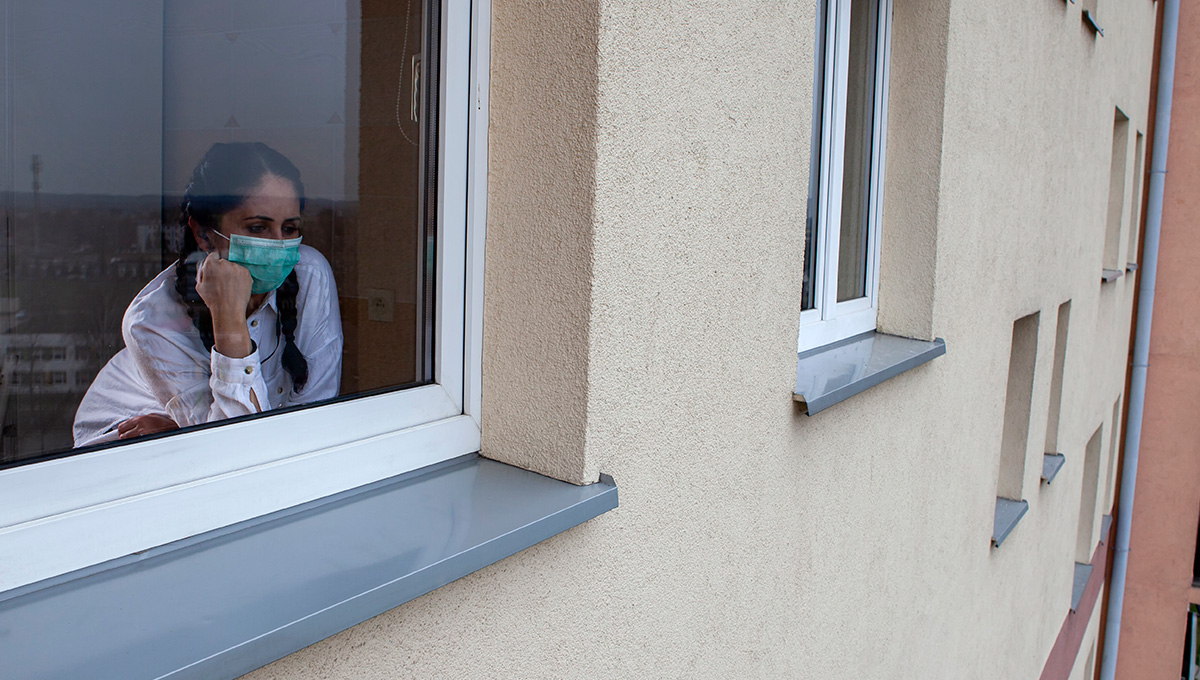By Tyrone Burke
COVID-19 hasn’t just been a crisis of physical health, it has had enormous mental health consequences for too many.

Brent Moloughney
“In fall 2020, 40 per cent of people in Ottawa reported their mental health as only ‘fair’ or ‘poor,’” says Ottawa’s Deputy Medical Officer of Health, Brent Moloughney.
“Prior to the pandemic, it was around nine per cent.”
At Carleton’s Life Sciences Day 4.1, Moloughney shared insights about how Ottawa Public Health has approached the mental health challenges created by the pandemic. COVID-19 has pushed the boundaries of resilience in every demographic, but some have more stressors than others.
Many parents have struggled to cope with the increased workload of home-schooling. Some seniors have been isolated for many months. And Ottawa’s Black community has dealt with the added burden of knowing their risk of contracting COVID-19 is disproportionately high. While just seven per cent of local residents self-identify as Black, the community accounts for 37 per cent of Ottawa’s confirmed cases.

Brent Moloughney delivers his address virtually at Life Sciences Day 4.1
“Crisis lines report a marked uptick in calls for assistance, and multiple organizations are talking about an increase in substance use. The Children’s Hospital of Eastern Ontario has reported traumatic injuries to infants have increased, which presumably reflects the increased stressors that families are experiencing,” says Moloughney.

Mental Health Consequences Could Reverberate for Years
The full scope of this shadow crisis is not yet known, but Ottawa Public Health has been working with the Royal Ottawa Mental Health Centre to address it.
“We’re continuing to work with our partners on suicide prevention, creating a one-stop shop for our residents to receive mental health information online, and working to reduce stigma,” says Moloughney.
“We want to send the message that we are all at risk of poor mental health. We are all under stress, even if our stressors are different and our coping strategies vary. There are things we can do to keep ourselves as healthy as possible. And if we don’t keep ourselves healthy, how can we help others be healthy?”
Still, the mental health consequences of COVID-19 could reverberate for years, even if vaccines exceed expectations.

Heidi Wood
“After the Spanish Flu pandemic, there is evidence of upticks in adverse mental health outcomes for as long as six years afterward.”
Last year’s edition of Life Sciences Day was cancelled and this year’s was held virtually. Moloughney and Heidi Wood of CAE Health Care delivered keynotes, and the event hosted sessions on mental health and the pandemic, as well as medical devices and diagnostics.
The annual poster competition also went ahead, with Neuroscience student Emily Arsenault winning the undergraduate poster competition for her investigation of the role of proteins 4E-BP1 and 4E-BP2 in regulating the behavioural responses of mice to ketamine. In the graduate competition, PhD student Noa Gang earned the top prize for research into how exposure to the environmental toxin TCDD can inhibit the secretion of insulin by pancreatic beta-cellls.

For Carleton President Benoit-Antoine Bacon, this year’s focus on mental health was welcome.
“It is a critical topic at all times, but it’s made even more salient and urgent by the pandemic,” says Bacon.
“A huge proportion of physical illness is due to trauma and mental health issues. That’s just a fact. Substance use, domestic violence, child abuse and political instability. They are all mental health issues. So, isn’t it time that we put mental health at the very centre of our concerns?”

Friday, April 9, 2021 in COVID-19, Events, Faculty of Science
Share: Twitter, Facebook



